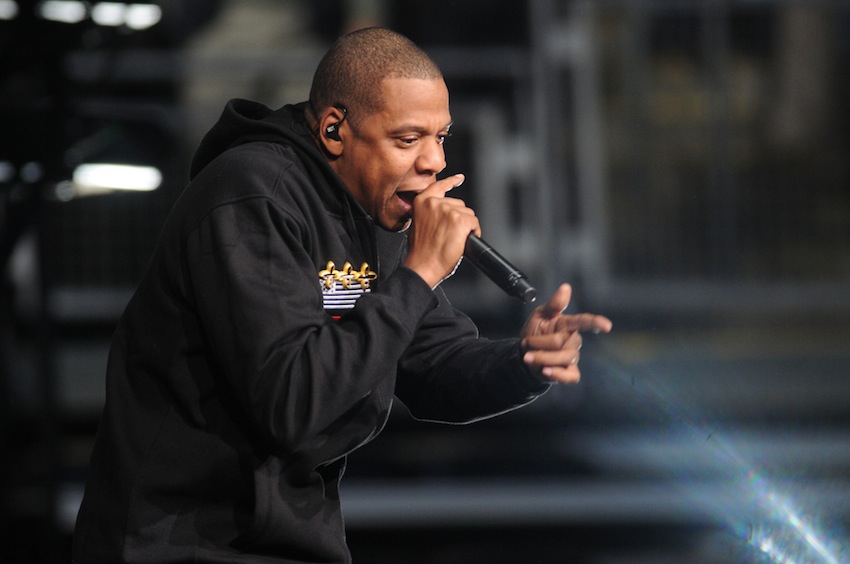A Boston Globe Columnist’s Embarrassing Take on Rap Music
It’s been a long time (six days, actually) since the Boston Globe last embarrassed itself by publishing something so aimed at a certain, uh, older subset of its readership that it alienated everyone else with an internet connection. So let’s have a look at columnist Alex Beam’s pearl-clutching crusade to prevent the intermingling of hip-hop and higher learning in Thursday’s paper.
Beam’s column “How Dre, Z, Nas, and 9th Wonder spent their summer vacations,” is being panned, at least in this writer’s social media circles, for being condescending, pointless, and not half as funny as it’d like to be. To the extent that Beam has a point at all—it’s hard to tell—we think it is that Dre, Jay-Z, Nas, and 9th Wonders’ sordid histories and lyrics aren’t a good mix with American institutions of higher learning. (Of Harvard’s collection of rap records, he writes sarcastically, “That’s why they call it the World’s Greatest University!”)
Nevertheless, Dre is funding an “academy for arts, technology, and the business of innovation” at the University of Southern California. Both Nas and 9th Wonder have participated in Harvard’s Hip-Hop Fellowship, taking on different endeavors there. And Jay-Z … isn’t doing much with academia, and thus doesn’t really fit in this column, but Beam just likes to snipe at him, it would seem, so here he is.
Beam’s strategy is to contrast offensive or artistically meritless lyrics (in his estimation) from these artists’s pasts with their recent ventures into university life. His passage on Dre is representative of the rest:
Dre (pre-rap name — Andre Young) was an original member of the group N.W.A., whose full name we cannot share with you because of archaic conceptions of good taste. Perhaps you remember N.W.A.’s first album, “Straight Outta Compton,” with its chart-topping hit “[Expletive] tha Police.”
That was then and this is now. Dre and music producer Jimmy Iovine are jointly funding a new “academy for arts, technology, and the business of innovation” at the University of Southern California.
As in any genre, let’s admit that in rap, there is a lot of shitty music out there. But when your leading point of evidence for the idea that rappers don’t merit academic investigation is “Fuck tha Police…” well, you’ve erred. Sorry. Did the song offend a lot of people for glorifying violence against law enforcement when it was released in 1988? Yes. Did it also put words to a profound sense of injustice among the urban, poor, African-American community at that time? Enough people probably say “yes,” such that you shouldn’t put it first in your list of “reasons Harvard and rap music don’t mix.” In a year when conflict between law enforcement and African-American communities has played out in controversial stories from Trayvon Martin’s death to New York’s stop-and-frisk, it’s not hard to find reason to discuss that song, its provenance, and its continued popularity.
Let’s not continue on through Beam’s snark line-by-line. The larger point is that if you’re going to argue persuasively that rap and hip-hop, “with their celebration of ignorance, gangster-ism — sorry, gangsta-ism — and violence against women,” shouldn’t be collected, archived, and studied at schools like Harvard and Yale, as Beam seems to imply, you should wrestle with the work of those who are undertaking those endeavors. You should say why.
Or you could write a gossipy column in your newspaper that juxtaposes context-free song lyrics with the word “Harvard,” as if this is evidence enough, adding a tone so smug, only those who already knee-jerk agree with you will be convinced.
The Boston Globe is a large, multi-faceted organization with many voices, (some of whom aren’t so pleased to be sharing space with this column today.) But this kind of flippant, surface-deep treatment of the subject does them no service in their reputation as a stodgy, outdated media property unable to adapt to the times in which they are living. (To the Opinion page’s credit, look no further than the columnist next door to Beam for an example of someone more curious and engaged in the world of modern music around her.)
To borrow from Beam’s playbook by cherry-picking an embarrassing quote, let’s note that in his biography on the Globe website, he says of writing columns, “You don’t have to be right, you don’t have to be fair, frankly” —um, what?— “but you do have to be readable and you do have to present an argument that holds some water. It doesn’t sound like too high a bar to get over.” Well, actually, without descending too far into the ad hominem, when you’re an Exeter and Yale educated self-described squash enthusiast, you do have a pretty high bar to get over when taking on a topic on which your expertise is going to be inevitably scrutinized. (Take it from a Yale educated sailing enthusiast from Hingham who knows!) The bar might not sound too high to Beam. Unfortunately in this case, it was.



